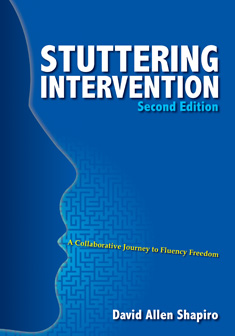Stuttering Intervention: A Collaborative Journey to Fluency Freedom reflects the most current thinking across multiple disciplines relative to the assessment and treatment of people of all ages who stutter. This second edition represents a major enhancement to an already outstanding text; it also incorporates many new topics that are critical for a deep understanding of the stuttering disorder including new and emerging treatment strategies, evidence-based practice and the evaluation of treatment outcomes, the value of self-help and mutual aid, clinical training and specialisation, global perspectives on the nature and treatment of stuttering, and more.
Readers familiar with the first edition will recognise the same easy-to-follow writing style and will welcome the completely updated treatment of many topics. These include the necessary background about fluent and disfluent speech, clear explanations of the factors that affect development and maintenance of the disorder, concrete strategies for evaluating and treating stuttering across the life span (from preschool children through senior adults), a strong theoretical background that helps clinicians conceptualise the disorder, a comprehensive and integrated perspective on the effect stuttering can have on people’s lives, meaningful links to other disciplines that can support and enhance interactions with clients, direct suggestions about how clinicians can develop their skills, and thoughtful guidance about how to cultivate a genuine sense of empathy for people who stutter and their families.
This text provides students and experienced clinicians alike with historical perspectives, theoretical underpinnings, balanced and respectful interpretations of the literature, real-world experiences with tested treatment strategies, personal opinions and perspectives of the author and his clients, and numerous examples of practical application. By increasing knowledge, empathy, and understanding, all the while by providing direct guidance, this book will give clinicians the confidence they need to achieve true clinical excellence so they can help people who stutter overcome the challenges of their disorder and pursue their goals in life.
|



